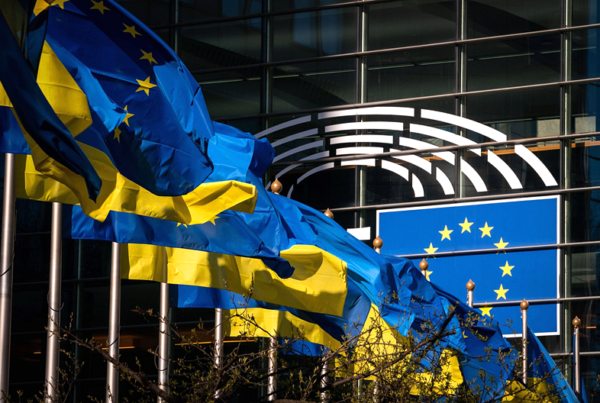The European Union and Ukraine have announced intentions to increase cooperation in renewable energy and hydrogen to promote development in the country whose energy system has been severely harmed by Russian attacks.
The draught memorandum of understanding is set to be signed later this week in Kyiv by President Volodymyr Zelenskiy and top EU officials. Before it is approved by the governments involved, the document could still be changed.
The draft showed that the EU and Ukraine would improve the regulatory, financial and environmental conditions to “significantly accelerate the deployment of renewable energy in Ukraine” and attract investment to the sector.
Read also: BOI to spend over N1bn on South-South renewable energy
Government officials have said that about 40% of Ukraine’s energy system has been damaged by Russian strikes, leaving the country with a huge need for investment in reconstruction. The EU said this month it would deliver 1,000 generators to Ukraine from a reserve located in Poland, having offered 1,400 already.
The draft agreement would look beyond such emergency provisions and aim to support Ukraine in building up renewable energy and developing nascent low-carbon sectors – even as the war rages on following Russia’s February 2022 invasion.
The EU and Ukraine would share information on demand forecasts for hydrogen and renewable gases such as biomethane, and sync how they certify them as they attempt to build a market for non-fossil fuel gases, the draft said.
“The aim is to provide potential investors with maximum clarity on the development of the industry and on the market for these gases,” it said.
The draft did not make clear if the cooperation would be restricted to hydrogen produced from renewable electricity – which the EU wants to massively expand to meet climate goals – or if it would also cover other types.
The vast majority of hydrogen used in Europe today is derived from fossil fuels in a process that produces planet-warming CO2 emissions.
Another draft document showed nine countries including France and Hungary had asked for the Ukraine agreement to include other “low carbon gases” – a term that could include hydrogen produced from nuclear energy.
Nuclear is Ukraine’s largest source of low-carbon energy, but its plants have become the site of safety fears during the war. The Zaporizhzhia nuclear power station, Europe’s largest, was captured by Russia last March and has repeatedly come under fire.
Story was adapted from Reuters.
